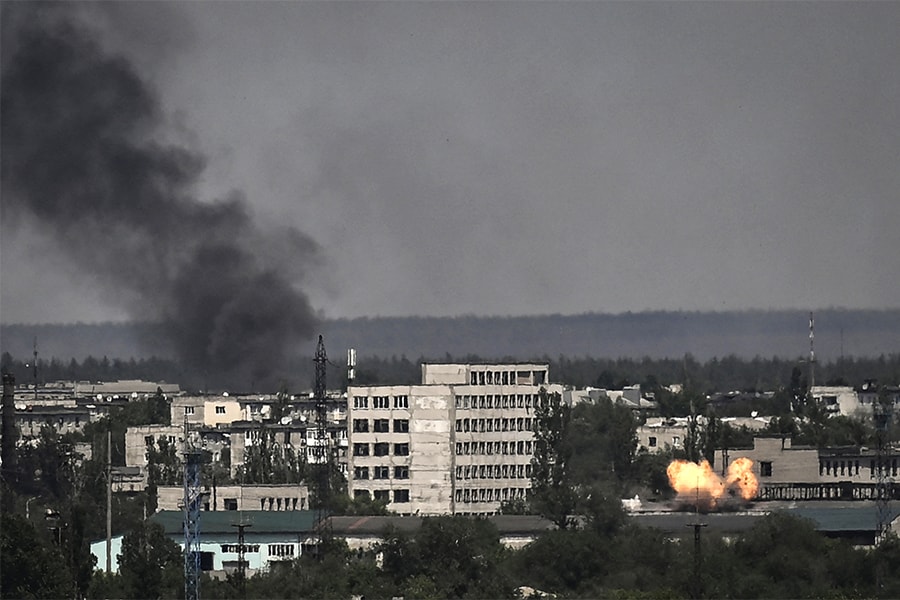
US to send Ukraine advanced weapons, as battle for east rages
The US is attempting to help Kyiv's war effort while not being seen as a direct belligerent, and it stresses that while the weapons would be used to "repel Russian advances on Ukrainian territory", they would not be "used against Russia"
 A photograph shows an explosion in the city of Severodonetsk during heavy fighting between Ukrainian and Russian troops at eastern Ukrainian region of Donbas on May 30, 2022, on the 96th day of the Russian invasion of Ukraine. (Credits: ARIS MESSINIS / AFP)
A photograph shows an explosion in the city of Severodonetsk during heavy fighting between Ukrainian and Russian troops at eastern Ukrainian region of Donbas on May 30, 2022, on the 96th day of the Russian invasion of Ukraine. (Credits: ARIS MESSINIS / AFP)
President Joe Biden has said the United States will send more advanced rocket systems to Ukraine, as Russian troops press their ferocious bid to complete the capture of a key eastern city.
The battle for Severodonetsk has grown in intensity in recent days, with heavy casualties on both the Ukrainian and Russian sides.
Russian troops hit a nitric acid tank at a chemical plant in the city on Tuesday, prompting Ukrainian President Volodymyr Zelensky to accuse Moscow of "madness".
One of the industrial hubs on Russia's path to taking the eastern Lugansk region, Severodonetsk has become a target of massive Russian firepower since the failed attempt to capture Kyiv.
The Russians now control most of the destroyed city, according to regional authorities.







